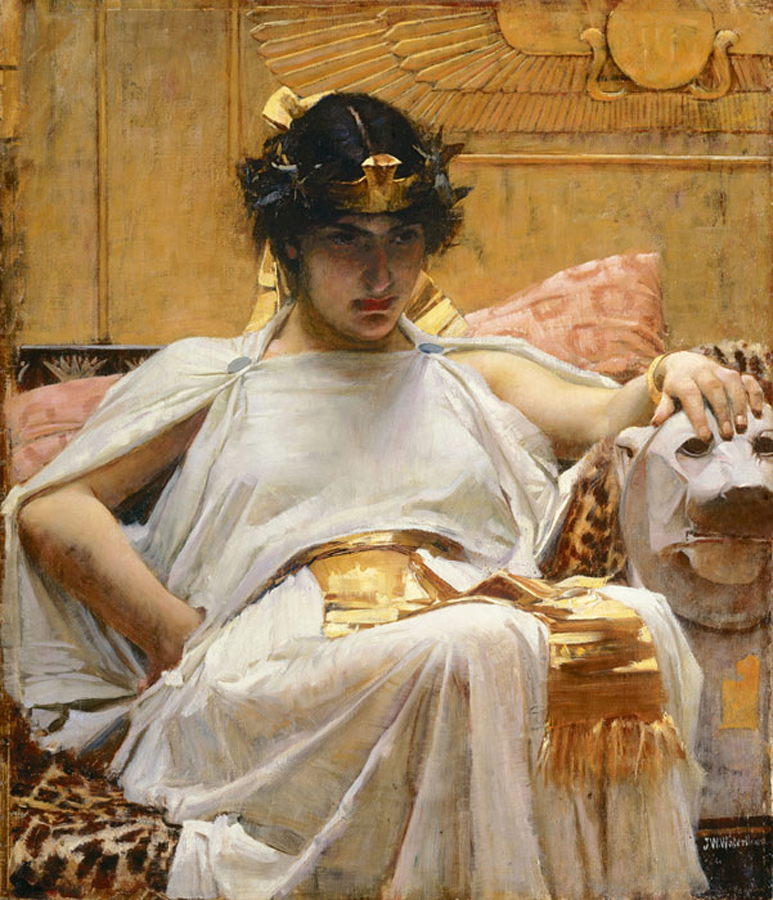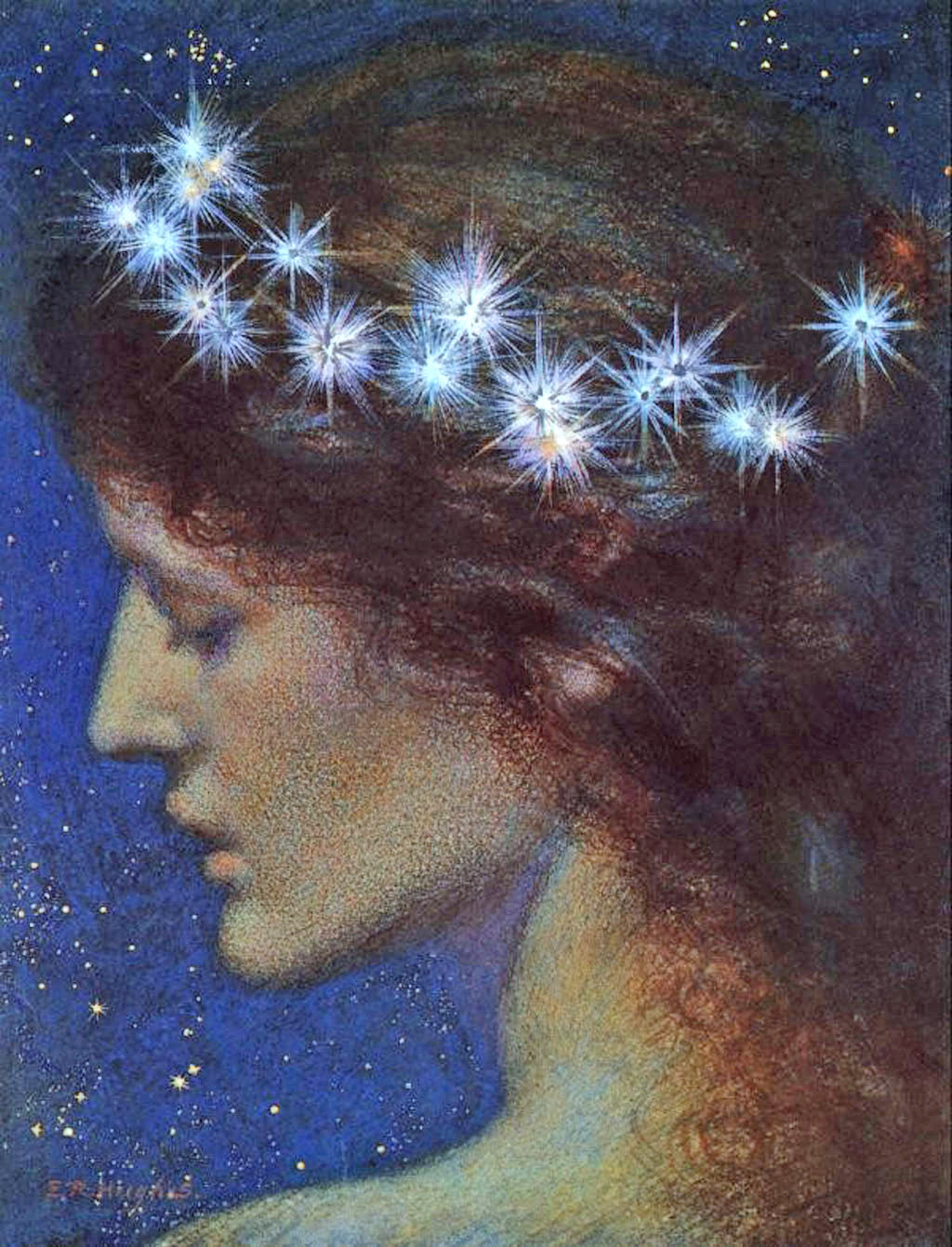 |
| Priestess of Delphi, Collier |
Long before it belonged to Aesclepius, the serpent temple of Kos was sacred to Leto, the daughter of the Serpent of Light, the granddaughter of the Mother of Mountains. Leto, the Swan Maiden, the midwife, the initiator of young women, had her sacred rock on Kos. In early days, when she was young, Leto made an oath to the Mother of Mountains. In a cave called "White Womb of the Earth", Leto swore to the Old Powers Underground that she would never give birth to a child.
 |
| Cleopatra, J. H. Waterhouse |
And yet, as the years passed, as century piled upon century, Leto began to crave children. And so she forswore her vow, and ran off with the Bull of Heaven, whose hoofbeats make the thunder. The Mother of Mountains was angry, and forbid all the land to allow Leto to give birth.
 |
| Night, Robert Hughes |
Long before it belonged to Apollo and Artemis, the sacred island of Delos was Asteria, the sister of Leto, the daughter of the Holy Mind, the son of the Starry Vault. Asteria, the Lapis Queen, the goddess of prophetic dreams, the initiator of young men,
would become the island Delos. Asteria begged for the life of her sister, begged that she be permitted to deliver safely. Asteria swore her own virgin daughter, Hekate, to the service of the Old Powers of the Earth in Leto's place. And so was the Mother of Mountains appeased.
 |
| Mother and Child, Lord Leighton |
And so the exchange was made; on Delos, midwifed by her sister, Leto was delivered of golden-haired twins; Artemis and Apollo. Hekate, the black-haired virgin, was sent into the service of the Mother of Mountains. At Ephesus, she learned the arts Leto had forsworn: midwifery and healing, wilderness and mountain herb; aconite and asphodel, cedar and crocus, fir and date palm, sweet flag and walnut, but above all, mugwort and kannabis, the sacred herbs of vision.
 |
| Rosetti, Astarte Syriaca |
Years passed, centuries piled up, and Artemis, the cousin of Hekate, the virgin huntress, began to crave a daughter. And yet, perhaps a remnant curse of her mother's broken oath, Artemis could not conceive. Her womb lay fallow. She grew into an accomplished healer, the goddess of midwives, but she could not bear.
 |
| Artemis, Arthur Rackham |
And so Hekate, as her mother had done before her, interceded with the Mother of Mountains. She pledged herself anew to the Mother of Mountains, that the fertility of her womb, unwanted and unused, might be given to her cousin, Artemis. In exchange, Hekate took from Artemis the gift of propecy by day, for Hekate is a goddess both dark and light. Hekate, the deliverer of Persephone, undertook her vow at the Autumn Equinox, and in the dark of Winter, Artemis conceived.
 |
| Hekate, Maximillian Pirner |
And so Artemis, the granddaughter of the Moon, gave birth at the Autumn Equinox, to a daughter. In the East, at the ancient temple of Ephesus, midwifed by Hekate Phosphorus, Artemis nursed her infant daughter, Astraea, the goddess of Justice, the granddaughter of Themis, the inheritor of both Hekate and Artemis.
 |
| 'Take the Fair Face of Woman, and Gently Suspending, With Butterflies, Flowers, and Jewels Attending, Thus Your Fairy is Made of Most Beautiful Things', Charles Ede |







